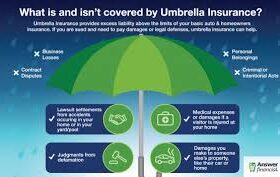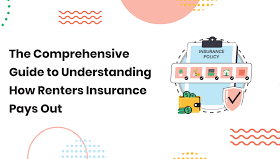If you’re trying to find out if credit score affects car insurance then you should read this till the end because all the information you need is contained here.
You just got a new car and you’re excited to hit the road, but before you can do that, you need to get insurance for it. There are a lot of car insurance companies out there, and it can be overwhelming to figure out which one is the best, especially if your credit score isn’t great.
In some places, car insurance companies check your credit score to decide how much to charge you for insurance. If your credit score is good, you’ll likely pay less, but if it’s bad, you’ll probably pay more for insurance.
Getting cheaper car insurance when you have a low credit score is possible. This article will explain how your credit affects the cost of car insurance and how improving your credit score can save you money.
How Credit Scores Impact Car Insurance Prices
When you’re shopping for car insurance, it’s important to know that your credit score can influence how much you pay for coverage. Here’s a simple breakdown of how credit and car insurance are connected.
Understanding Your Credit Score
Your credit score, often called a FICO score, is a three-digit number that shows how responsible you are with credit.
It ranges from 300 to 850, with higher scores indicating better credit behaviour Lenders use this score to decide if you’re a risky borrower or not.
They look at things like your payment history, how much debt you owe, and the length of your credit history to determine your score.
For example, if you have two credit cards with a combined credit limit of $5,000 and you’ve only used $500, you’re in good shape.
Lastly, the credit bureau checks how many times companies have looked at your credit or asked about your finances. These checks show how often you’ve tried to get new credit cards or loans. If there are a lot of checks in a short time, it can make your credit score go down. Having a higher credit score can make it easier to get approved for loans or get cheaper insurance rates.
How Does Car Insurance Premium Work?
Car insurance helps protect your car if something bad happens, like a car crash, natural disaster, or theft. It’s like a financial safety net, paying for any damage your car causes or fixing it up if needed. Some policies even help cover your medical bills and lost wages if you get hurt in a crash, or replace your car if it’s completely wrecked.
Most states make it a rule to have car insurance, and they say how much coverage you need. For example, they usually want you to have enough insurance to pay for injuries or damage you cause in an accident. Make sure you talk to your local DMV to make sure you have the right amount of coverage for where you live.
Do Credit Cards Affect Car Insurance Premium
In nearly every state, car insurance companies can consider your credit score when deciding how much to charge you for insurance. So, even if you’re a great driver, having a bad credit score might mean you have to pay more for insurance. Here are some common questions people have about how car insurance and credit scores are connected
How Do Insurance Providers Make Use of Credit Score
Unlike the regular credit score used for credit cards and loans, car insurance companies use a credit-based insurance score to see how likely you are to file a claim. This score helps them figure out how much to charge you for insurance.
It’s legal across the country for insurance companies to base your premium on your credit score. But some states, like California, Hawaii, Michigan, and Massachusetts, don’t allow it. If you live in one of these states, you might get better rates even if your credit score isn’t great.
How To Improve Your Credit Score
Don’t stress if your credit score isn’t as good as you’d like. You can change some of your money habits to make it better. This could help you get approved for loans more easily and maybe even get cheaper insurance.
Here’s what you can do;
1. Pay Your Bills on Time
Late payments can hurt your credit score for a long time. Show you’re good at managing money by always paying on time. Set up automatic payments to make sure you don’t forget. If you do miss a payment, talk to your lender right away to fix it.
2. Have Different Types of Credit
Having more than one credit card can help your score. If you only have one, your score might not improve much, even if you pay it off each month. Think about getting a small loan or another credit card to boost your score.
3. Pay Off Your Debts
How much of your available credit you’re using affects your score. Keeping lots of credit cards with high balances can lower it. Try to pay off what you owe each month, or at least keep the balance low. You could make smaller payments more often to help bring it down.
4. Fix Mistakes on Your Credit Report
If you spot errors on your credit report, you can dispute them with the credit bureau. For example, if you’ve paid off a credit card, but it still shows up on your report, contact your bank to see how long it takes for the debt to clear—usually around 30 days. If it doesn’t disappear, gather evidence and send it to the credit bureau with your dispute.
- How To Calculate Car Insurance
- Gap Insurance: How Does It Work
- What Is Full Insurance Coverage
- How To Reduce, Pause and Cancel Car Insurance
- Insurance Cost After Accident
5. Increase Your Credit Limit
By raising your credit limit, your outstanding balance stays the same, but your overall credit usage goes down. If your income has gone up or your credit has improved, ask your bank for a higher limit. Lowering your credit usage can boost your credit score, possibly leading to better car insurance rates.
6. Negotiate with Debt Collectors
If you owe a lot of money that’s gone to collection agencies, they’ll keep reporting it until you pay up. But some agencies might accept a lower amount if you pay in full. Talk to them and agree on a settlement. Once you’ve paid off your debts, they’ll be removed from your report, improving your credit score.





